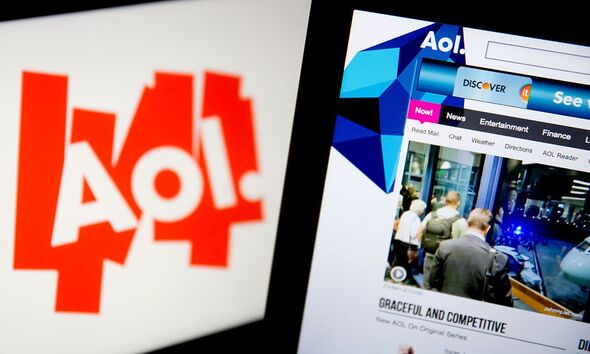Lifestyle
AOL Shuts Down Dial-Up Service, Marking End of Internet Era

AOL, the once-dominant internet service provider, is set to discontinue its dial-up internet service, officially marking the end of an era in online connectivity. This decision will take effect on September 30, 2025, affecting customers in both the United States and Canada who have relied on the antiquated technology for their internet access.
Dial-up connections, which utilize standard telephone lines, were essential during the internet’s early days in the 1990s. At that time, they offered a gateway to a new digital world, albeit at painfully slow speeds. Today, however, this technology is woefully inadequate compared to modern standards. Dial-up typically reaches speeds of only 56 kilobytes per second, meaning it would take more than one day to download a 1GB file. In contrast, the average broadband speed in the UK is projected to be 223 Mbps by 2025, enabling users to download the same file in under 36 seconds, according to Ofcom.
AOL has announced the discontinuation of its dial-up service on its official website, stating, “AOL routinely evaluates its products and services and has decided to discontinue Dial-up Internet. This service will no longer be available in AOL plans.” Along with the end of dial-up, the associated software, including the AOL Dialer and AOL Shield browser, will also be phased out, as they are optimized for outdated operating systems.
While AOL’s dial-up service may have faded into obscurity, the brand itself remains a notable part of internet history. Founded in 1985 as Quantum Computer Services, AOL became synonymous with early internet access, particularly through its popular web and email services. The platform played a significant role in introducing millions to the internet, even featuring prominently in popular culture, such as the 1998 film “You’ve Got Mail,” starring Tom Hanks and Meg Ryan.
The company’s UK operations ceased in 2006 when it was acquired by Carphone Warehouse, yet AOL’s legacy continues through its email services. As dial-up connections are finally being retired, many users who have not transitioned to broadband will be left with no alternatives.
Today, AOL is a subsidiary of Yahoo, which itself remains a recognizable name in the tech landscape. Despite its historical significance, AOL now faces stiff competition from industry giants such as Microsoft and Google, marking a stark contrast to its former status as a pioneer of the internet.
As dial-up connections draw to a close, the discontinuation of AOL’s service signifies the profound evolution of internet access over the past few decades. The shift from dial-up to high-speed broadband reflects not only technological advancements but also the changing landscape of how people engage with the digital world.
-

 Health2 months ago
Health2 months agoNeurologist Warns Excessive Use of Supplements Can Harm Brain
-

 Health3 months ago
Health3 months agoFiona Phillips’ Husband Shares Heartfelt Update on Her Alzheimer’s Journey
-

 Science4 weeks ago
Science4 weeks agoBrian Cox Addresses Claims of Alien Probe in 3I/ATLAS Discovery
-

 Science4 weeks ago
Science4 weeks agoNASA Investigates Unusual Comet 3I/ATLAS; New Findings Emerge
-

 Science4 weeks ago
Science4 weeks agoScientists Examine 3I/ATLAS: Alien Artifact or Cosmic Oddity?
-

 Science3 weeks ago
Science3 weeks agoNASA Investigates Speedy Object 3I/ATLAS, Sparking Speculation
-

 Entertainment4 months ago
Entertainment4 months agoKerry Katona Discusses Future Baby Plans and Brian McFadden’s Wedding
-

 World2 months ago
World2 months agoCole Palmer’s Cryptic Message to Kobbie Mainoo Following Loan Talks
-

 Entertainment4 months ago
Entertainment4 months agoEmmerdale Faces Tension as Dylan and April’s Lives Hang in the Balance
-

 Science3 weeks ago
Science3 weeks agoNASA Scientists Explore Origins of 3I/ATLAS, a Fast-Moving Visitor
-

 Entertainment4 months ago
Entertainment4 months agoLove Island Star Toni Laite’s Mother Expresses Disappointment Over Coupling Decision
-

 Entertainment3 months ago
Entertainment3 months agoMajor Cast Changes at Coronation Street: Exits and Returns in 2025









